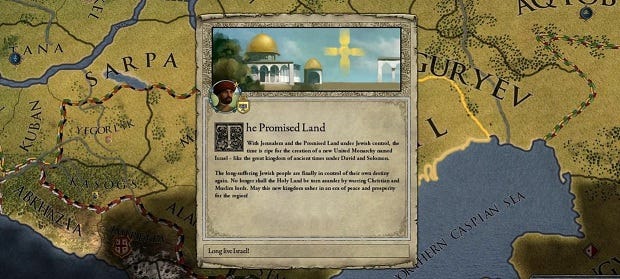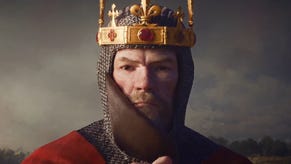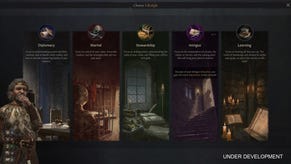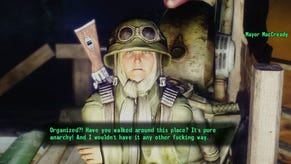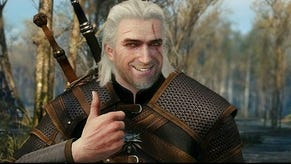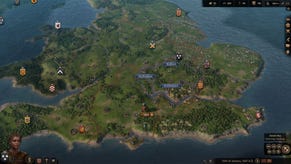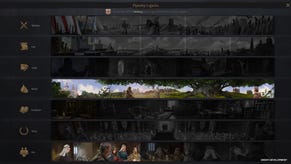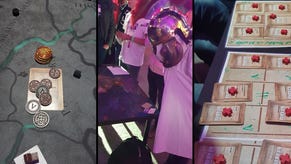2013’s Grandest Strategy Game: Crusader Kings 2
The Crusade Continues
Crusader Kings 2 is one of my personal favourites of 2013, as it was in 2012, but it didn’t have a place in our calendar. It could been included using the Trojan Horse of DLC, as XCOM did thanks to Enemy Within, but it’s hard to pick out the stand-out expansion for CK II. Even The Old Gods, which expanded the timeframe, felt like part of the whole rather than a distinct item. That is part of the brilliance of the design, but it also makes it much harder to say ‘Crusader Kings II: Old Gods’ is one of the games of 2013 rather than simply saying, ‘Crusader Kings II is one of the games of the year. Again.” Here’s why I think that argument is valid.
CK II has retained its place as my most played and most loved strategy title across 2013, and that’s at least partly because of the ways in which Paradox have expanded the core experience. All the DLC in the world wouldn’t make a difference - no matter how strong it was - if the base game hadn’t been as solidly constructed as it was.
When I first played CK II, it wasn’t quite a finished game. That’s nothing to do with the product that Paradox released - I had an alpha version for preview purposes – but it didn’t feel like anything was missing. If memory serves, there were some interface tweaks before release and changes to combat balance, but the biggest gap was the place where the (many) tutorials now reside. But the fact is, even before the game was deemed ready for release, it felt complete. There was enough content in the game to provide years of historical recreation and strategic roleplaying.
This was partly due to a change of approach from Paradox. The company’s internally developed grand strategy games have long been deep, drenched wells, but in days gone by they’ve also occasionally been the sort of hole in the ground that Sadako might lurk in, ready to ruin somebody’s day. There were interface problems and uncomfortable features, leading to a growing perception that the experience might not be worthwhile until a couple of expansions had smoothed the edges. It’s a reputation that wasn’t entirely deserved but it’s also the sort that can be as hard to shake as Meathook’s hand.
Over the course of 2013 I spoke to members of the Paradox Development Studio several times, as well as CEO Fredrik Wester, and a common theme was the recognition for longer incubation periods. When a game as complex as Europa Universalis IV seems well-baked, they admitted, it might still benefit from a few more months in the oven. Or in the egg, depending on which metaphor you prefer. And that’s precisely what happened – EU IV, like CK II before it, was almost fully functional long before release.
CK II seems like the beginning of a new era for Paradox Development Studio, which is the internal creative team at parent company Paradox Interactive. The hybrid RPG/strategy style brought in a new audience – many presumably ignorant of the prequel – and behind that map and all of those stats, people discovered a dynastic soap opera, with torture, incest and assassinations in almost every episode.
What strikes me, almost two years after release, is that the possibilities presented by that map have expanded to horizons I never imagined. The greatest disappointment of the base game was the inability to play as Islamic rulers but when the first expansion made that possible, the wait was justified. Rather than being Ryu to the Catholic’s Ken, Islamic dynasties had their own rules, laws and dangers. The same is true of republics, pagans and, with the latest expansion, Jewish characters. At this point, it’s possible to start a new game, even after hundreds of hours playing, and try something completely new.
In a series where an extra graphic or two wouldn’t make an enormous difference, it’s hard to think what value Paradox could add to Crusader Kings III that hasn’t already found its way into the game that we already have. But then I remember that there may well be more expansions to come and realise that I’m still not seeing the whole picture. History is a grand canvas, and Europe and its environs contain more stories than we’d see in many thousands of hours of play.
The announcement that EU IV’s first expansion would contain a randomised New World surprised me. These are games that have always created alternate histories but every campaign began with the same ingredients – the deviations were a result of player and AI actions rather than inherent differences in the world itself. A willingness to adjust the layout of the world could have consequences for future crusades and, as Sunset Invasion demonstrated, Paradox recognise that enjoying the malleability of historical recreation can create interesting scenarios.
That’s not to say that Victoria III will have an optional Steampunk campaign but I wouldn’t be surprised to see the next phase of Crusader Kings expansions delving into the weirder aspects of chivalry, religion and medieval folklore. Whether that’s the case or not, I’m already certain that CK II will be among my favourite games of this year as well as the previous two. I haven’t had enough time to explore Sons of Abraham’s intricacies yet but fully intend to do so.
Every time CK II expands, I plan to write about the new additions and every time I come up against the same problem. Every new feature and play style quickly becomes sublimated into the whole game – a review of The Old Gods or Sons of Abraham becomes a review of CK II as it is now. None of the DLC is essential because the game was always thousands of hours deep and packed with plots and perfidy, but every new option and event elaborates on what came before.
From my perspective, the worst thing about CK II is that it continues to fill most of the evenings and nights I set aside for EU IV. I’m sure there are people who have time for both but those people are temporal vampires with rapidly ageing prisoners trapped in their basements. Every night the vampires descend and ingests a week of a victim’s life in a single moment, using a horrific combination of a miniature grandfather clock and a crazy straw.
CK II isn’t one of my favourite games of 2013 simply because my fascination with it carried over into a new year. If that were the case, Ancient Domains Of Mystery would have been in my personal top ten every year since I discovered it around 1999. CK II hasn’t simply existed since February 2012 though – it has grown, regularly and intelligently. It the current version, with all of the expansions, had been released as it is, in December, it could well have been received as a sequel. It certainly contains more new content than many games that add a new number after their title.
